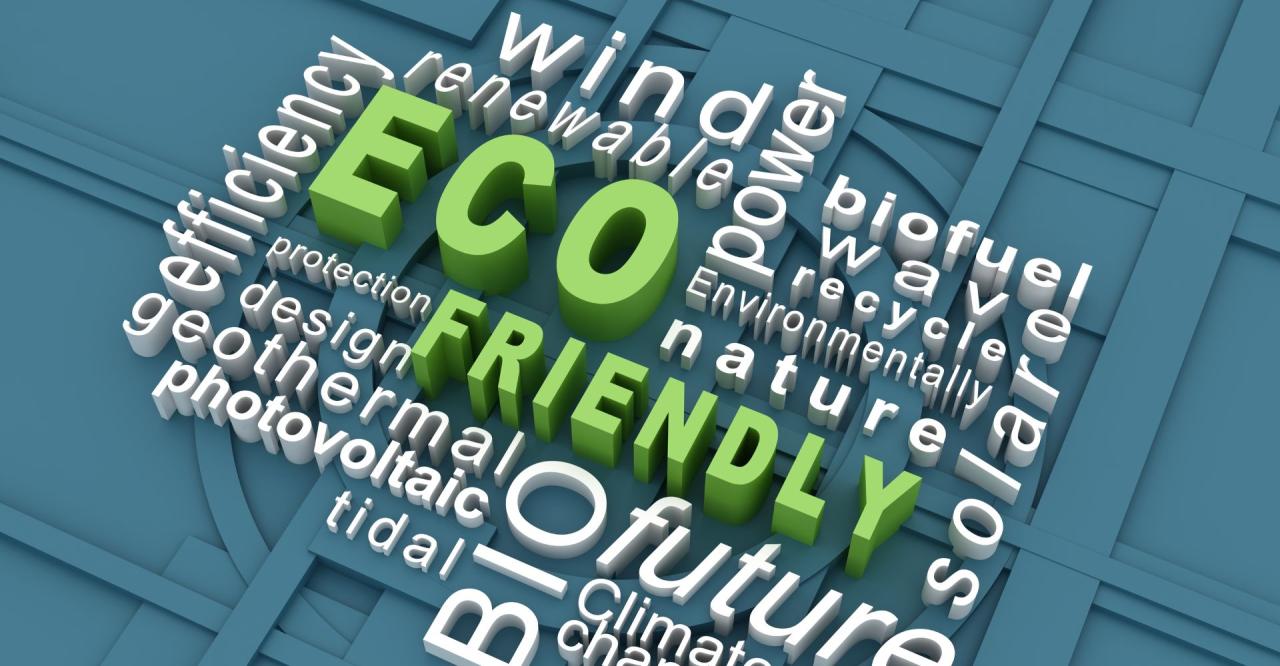Embarking on an eco-friendly journey as a family can have a profound impact on the environment, your finances, and overall well-being. Discover how simple lifestyle changes can make a significant difference in the world we live in.
From reducing energy consumption to engaging in nature-based activities, there are numerous ways for families to embrace sustainability and create a healthier planet for future generations.
Benefits of an Eco-friendly Lifestyle for Families

Living an eco-friendly lifestyle can have numerous positive impacts on the environment, as well as on the health and well-being of families. By making conscious choices to reduce waste, conserve energy, and use sustainable products, families can contribute to a healthier planet for future generations.
Positive Impact on the Environment
- Reducing carbon footprint by using renewable energy sources and minimizing waste production.
- Preserving natural resources such as water, forests, and wildlife habitats.
- Decreasing air and water pollution by opting for eco-friendly transportation and cleaning products.
Cost Savings from Eco-friendly Practices
- Lowering utility bills through energy-efficient appliances and home improvements.
- Reducing grocery expenses by growing your own organic produce or supporting local farmers.
- Minimizing healthcare costs by choosing natural and non-toxic products for personal care and cleaning.
Improved Health and Well-being
- Enhancing indoor air quality by using eco-friendly paints, furniture, and air purifiers.
- Promoting physical activity and mental well-being through outdoor activities like gardening or biking.
- Reducing exposure to harmful chemicals and toxins that can cause allergies, respiratory issues, or other health problems.
Eco-friendly Home Practices for Families

Creating an eco-friendly home is not only beneficial for the environment but also for your family's health and well-being. By implementing simple practices, you can reduce energy consumption, recycle household items, and use non-toxic cleaning products.
Reducing Energy Consumption
Reducing energy consumption at home is a great way to lower your carbon footprint and save money on utility bills. Here are some tips to help you reduce energy usage:
- Switch to energy-efficient appliances and light bulbs.
- Unplug electronics when not in use to eliminate phantom energy usage.
- Use natural lighting whenever possible and minimize the use of artificial lighting.
- Opt for smart thermostats to regulate heating and cooling efficiently.
Recycling and Upcycling Household Items
Recycling and upcycling household items can significantly reduce waste and contribute to a sustainable lifestyle. Here are some ideas to help you recycle and upcycle effectively:
- Set up a recycling station in your home for easy sorting of recyclable materials.
- Repurpose old furniture or items by giving them a fresh coat of paint or using them in creative ways.
- Donate clothes, toys, and other items instead of throwing them away.
- Compost organic waste to create nutrient-rich soil for your garden.
Benefits of Using Non-Toxic Cleaning Products
Switching to non-toxic cleaning products is essential for maintaining a healthy indoor environment for your family. Here are some benefits of using non-toxic cleaning products:
- Reduce exposure to harmful chemicals that can cause respiratory issues and allergies.
- Protect the environment by preventing toxic chemicals from entering water sources.
- Create a safer living space for children and pets who are more vulnerable to chemical exposure.
- Non-toxic cleaning products are often biodegradable, reducing their impact on the environment.
Sustainable Shopping Habits for Families
When it comes to sustainable shopping habits for families, there are several key practices that can make a significant impact on the environment and overall well-being. From buying local and seasonal produce to reducing waste and choosing eco-friendly products, every decision counts towards a more sustainable lifestyle.
Buying Local and Seasonal Produce
One of the most effective ways to support sustainability is by purchasing local and seasonal produce. Not only does this help reduce carbon emissions from transportation, but it also ensures that you are getting the freshest and most nutritious fruits and vegetables available.
- Visit farmer's markets or join a community-supported agriculture (CSA) program to access locally grown produce.
- Check for labels that indicate where the food was grown to ensure it's from nearby sources.
- Plan meals based on seasonal produce availability to support local farmers and enjoy the best flavors.
Reducing Waste While Grocery Shopping
Minimizing waste during grocery shopping is another essential aspect of sustainable living. By making conscious choices and adopting eco-friendly practices, families can significantly reduce their environmental footprint.
- Bring reusable bags and containers to avoid single-use plastics and packaging.
- Buy in bulk to reduce packaging waste and save money in the long run.
- Avoid buying overly processed or individually packaged items to cut down on unnecessary waste.
Choosing Eco-Friendly and Sustainable Products
When shopping for household items, personal care products, and other essentials, it's important to prioritize eco-friendly and sustainable options. By selecting products that are ethically produced and environmentally friendly, families can contribute to a healthier planet and future.
- Look for certifications like USDA Organic, Fair Trade, or Forest Stewardship Council (FSC) to ensure products meet specific environmental and social standards.
- Opt for reusable or biodegradable alternatives whenever possible to reduce the reliance on single-use items.
- Research brands that prioritize sustainability and transparency in their production processes to make informed purchasing decisions.
Eco-friendly Activities for Families
Engaging in eco-friendly activities as a family can not only help protect the environment but also create lasting memories and strengthen bonds. Here are some ideas to get you started:
Outdoor Activities for Environmental Awareness
Spending time outdoors is a great way to connect with nature and teach children about the environment. Consider activities such as hiking in local parks, bird watching, or organizing a neighborhood clean-up to instill a sense of environmental responsibility.
Nature-based Education in Family Routines
Integrating nature-based education into daily routines can be both fun and educational. Try growing a garden together, composting kitchen scraps, or setting up a bird feeder to attract local wildlife. These activities can help children learn about the natural world and the importance of conservation.
DIY Eco-friendly Projects for Families
- Create a recycling station in your home and involve the whole family in sorting recyclables.
- Make eco-friendly cleaning products using simple ingredients like vinegar and baking soda.
- Upcycle old items to create new treasures, such as turning old jars into storage containers or repurposing clothing into reusable bags.
Concluding Remarks

In conclusion, adopting eco-friendly lifestyle hacks as a family not only benefits the environment but also fosters a closer bond among loved ones through shared experiences and a collective effort towards a greener future. Take the first step today towards a more sustainable and fulfilling way of living.
Questions and Answers
How can I save money by adopting an eco-friendly lifestyle as a family?
By reducing energy consumption and choosing sustainable products, families can cut down on utility bills and unnecessary expenses over time.
Why is it important to buy local and seasonal produce for a family practicing eco-friendly habits?
Buying local and seasonal produce supports local farmers, reduces carbon footprint from transportation, and ensures fresher, healthier food choices for your family.
What are some easy DIY eco-friendly projects that families can enjoy together?
Creating a compost bin, making reusable beeswax wraps, or crafting homemade natural cleaning products are fun and educational projects that promote sustainability within the family.







